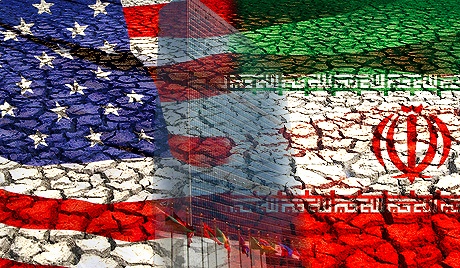Turkey's Missile Defense Challenges
By Richard Weitz (vol. 3, no. 5 of the Turkey Analyst)
By dint of geography and its strategic relations, Turkey has assumed a pivotal role in Europe’s future ballistic missile defense (BMD) architecture. The United States has been lobbying Ankara to participate in its program within a NATO framework, while Iran and Russia have encouraged Turkey to keep its distance from Washington’s BMD plans. Turkish officials have strived to balance these competing forces while leveraging them to advance Turkey’s own regional security interests.
Turkey's Position Between Iran and the West is Proving Increasingly Difficult to Sustain
By M. K. Kaya and Halil M. Karaveli (vol. 3, no. 3 of the Turkey Analyst)
As Iran’s nuclear ambitions cause growing concern among Western powers, Turkey remains committed to its ambition of staking out a mediating position in the Iranian-Western stand-off. However, the Turkish policy rests on the unrealistic assumption that Ankara can somehow avoid hard choices. Indeed, Turkey’s position is set to become increasingly untenable as the tensions rise. Although it would seem that Ankara faces a choice between retaining the trust of the United States and remaining true to the eastern vocation of its foreign policy, appearing to be an advocate of Iran is ultimately undermining Turkey’s credibility in the Middle East as well.
Iranian Crisis Catches the Turkish Government Off Guard
By Svante E. Cornell (vol. 2, no. 12 of the Turkey Analyst)
After two decades of deep tensions with Iran, the AKP government has largely rebuilt relations with Turkey’s historical rival and neighbor. Yet its responses to the Iranian crisis – in which Prime Minister Erdoğan was embarrassingly among the first to congratulate Mahmoud Ahmadinejad upon his highly questionable re-election – appears to question the foundations of this rapprochement. Moreover, it indicates the limitations of Ankara’s newly found “zero-problem” foreign policy, which appears to mean that Turkey has no opinions on the basis of either interests, values or principles in its neighborhood.
Between Political Crises: Turkish Energy Policy
By the Editors (vol. 1, no. 5 of the Turkey Analyst)
Realizing the rising need for the transportation of the Caspian Basin’s energy resources to world markets in the 1990s, Turkish decision-makers claimed that “Turkey should become an energy corridor and an energy hub for producer and consumer countries”. All recent governments have to different degrees supported this vision. Turkey’s energy hub prospects were boosted by the rapid developments in the Turkish economy, which created an increasing demand for energy resources, and forced the “Energy Strategy” to the focal point of political and bureaucratic circles.
How Far Will Turkey Go in Supporting Sanctions Against Iran?
by John Daly (vol. 6 no. 13 of the Turkey Analyst)
Iran is now subject to three differing sets of sanctions – the U.S., the European Union and the United Nations. The sanctions have caught the Turkish government in an awkward position, as imported energy is critical to sustaining the country’s soaring economy and left Ankara scrambling for alternatives. Iran currently provides 44 percent of Turkey’s oil imports and Turkey is Iran’s biggest natural gas customer.




